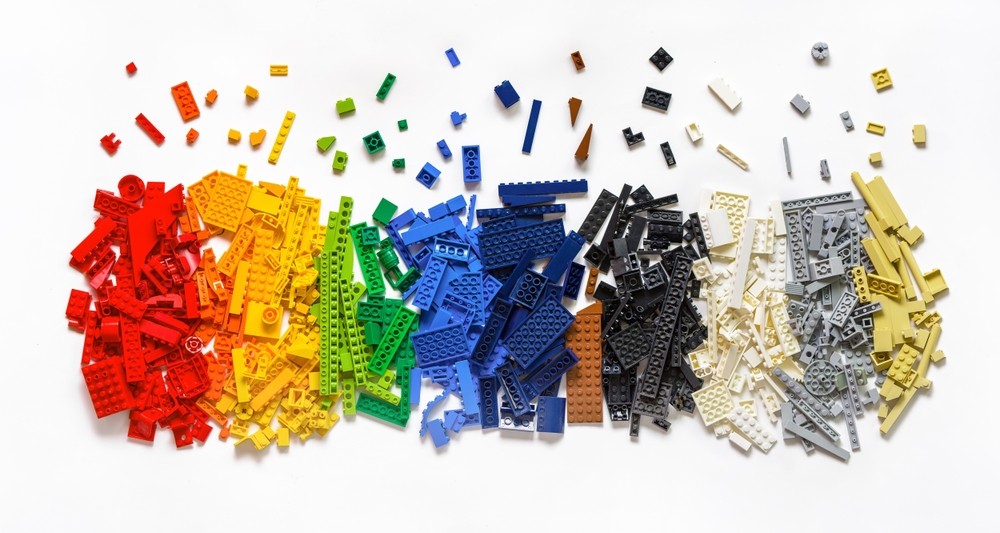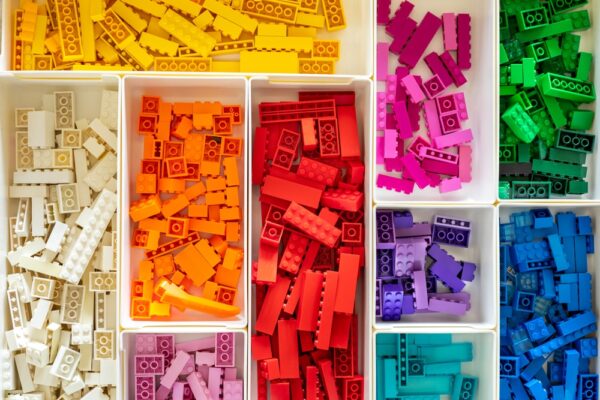What Lego Bricks Can Teach Us About Manufacturing Excellence

Lego bricks are ubiquitous across the globe, inspiring creativity and problem-solving for people of all ages. Whether by building out a kit one step at a time or discovering new constructions with mismatched pieces, building with Lego bricks opens imagination and inspires prowess for design. It’s why the company has endured for more than 90 years.
The humble Lego brick can teach us a lot about manufacturing as well. Lego bricks are a testament to thoughtful design, modularity, and even sustainable manufacturing practices. Let’s explore the lessons Lego can teach us about excellence in manufacturing.
Building blocks of creativity
At the heart of Lego’s appeal lies the modularity of Lego bricks. Each brick, with its precise dimensions and interlocking studs, is a building block for endless creativity. This concept translates interestingly to manufacturing. By creating standardized, high-quality components, Lego ensures smooth assembly and minimizes waste. This modular approach allows for efficient production lines and simplifies the process of introducing new pieces.
Imagine a car factory where every engine, wheel, and body panel seamlessly fit together, regardless of the specific car model — that’s the power of Lego-inspired modularity. And while this idea is often more difficult to envision in practice than in theory, it nonetheless serves as a reminder to simplify and standardize wherever possible. Look around your factory: Are there opportunities to get leaner through modularity?

Building on quality
One of the hallmarks of a Lego brick is its unwavering quality. While Lego produces tens of millions of bricks each year, you can easily snap together a brick made today with a brick made two decades ago. Every component — regardless of where or when it was produced — clicks perfectly with every other. This consistency translates to a reliable and trustworthy product.
When it comes to manufacturing excellence, Lego signifies a gold standard for robust quality control processes. By prioritizing consistency and quality assurance, Lego ensures its products are functional, safe, and durable. And the company’s dedication to quality has built indelible trust with customers.
This trust is the bedrock upon which Lego has built a legion of loyal fans. From children captivated by imaginative play to adult enthusiasts who cherish the nostalgia of childhood memories, Lego’s unwavering quality resonates across demographics. This enduring loyalty shows how emotional connection can be forged through consistent, reliable experiences.
Substance meets sustainability
Lego isn’t solely focused on building a better product; it’s also focused on building a better future. The company has made significant strides toward sustainable manufacturing.
Recognizing the environmental impact of plastic production, Lego has taken proactive steps to reduce its footprint. The company has invested heavily in research and development to explore sustainable materials, leading to innovations like plant-based plastics and eco-friendly packaging.
By embracing renewable resources and minimizing waste throughout its supply chain, Lego sets a precedent for environmentally conscious manufacturing practices. In 2021, it pledged to use recycled materials in its core brick products by 2030. This commitment goes beyond surface-level PR. It demonstrates a proactive approach to minimizing environmental impact. By investing in the research and development of sustainable materials, Lego sets an example for other manufacturers to follow.
Building a better future — one brick at a time
Manufacturers of all sizes can draw invaluable lessons from Lego’s approach. By prioritizing consistency, maintaining a steadfast commitment to quality, and embracing sustainability, companies can emulate Lego’s manufacturing excellence. Whether producing toys, electronics, or automobiles, the principles underpinning Lego’s success transcend industries, serving as a roadmap for leading the manufacturing sector. In a world where consumers increasingly demand transparency and responsibility from the brands they support, adopting Lego’s ethos offers a critical strategic advantage.